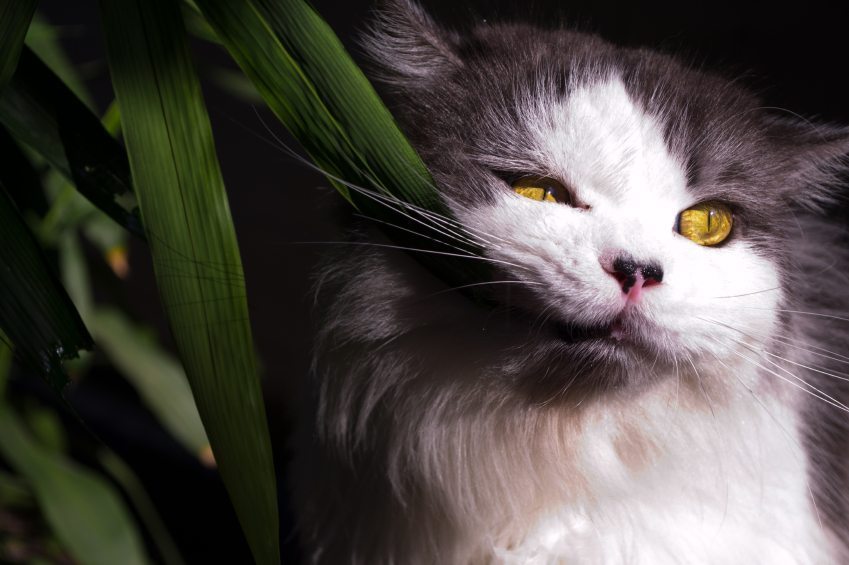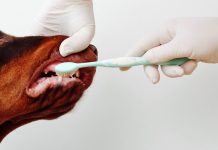 Pets can be like perennial two year olds: They put everything in their mouths, and cats in particular love to chew on plants.
Pets can be like perennial two year olds: They put everything in their mouths, and cats in particular love to chew on plants.
Some plants, like cat grass or catnip, are fine for cats to chew on. But then there are the poisonous plants that you have both indoors and outside in your garden that could wreak havoc with your pet’s health. So what happens when a cat chews on a toxic plant? First, assume every bit of a plant is poisonous even though some parts may be nontoxic. Poisonous plants are irritants. They cause inflammation of the skin, mouth and even stomach lining. There are some plants that will affect your cat’s kidneys, liver or heart.
The Most Common Types
Here is a list of some of the most common types of poisonous plants:
- Amaryllis
- Autumn Crocus
- Azaleas and Rhododendrons
- Chrysanthemum
- Cyclamen
- English Ivy
- Lilies
- Marijuana
- Oleander
- Peace Lily
- Pothos
- Sago Palm
- Spanish thyme
- Tulip and Narcissus bulbs
- Yew
This list is not an exhaustive list so if you don’t see a plant you are familiar with, try visiting the ASPCA for a more extensive list.
Symptoms
You’re going to want to watch out for redness, swelling or itching in the skin or mouth because that’s where the poisonous plant is going to go first. Most of these plants are irritants and they will behave on your cat’s skin much like when you suffer from poison ivy. Some typical symptoms include a difficulty breathing or swallowing, vomiting or excessive drinking and urinating.
What to Do
If you see your cat eating a plant in which are not familiar or you’re concerned that your cat may have chewed on a toxic plant, try these steps before heading to the veterinarian.
Remove the plant material from hair, skin or mouth. Don’t throw it away; put it in a baggie. If you can identify the plant, go out to the garden or find the plant in your home and bring it with you. This will help your vet identify what kind of plant it is and prescribe treatment for symptoms. If your cat has vomited any of the material, bring it with you as well. If the vet is far away from you or isn’t available, call the pet poison helpline at 1-855-213-6680.
Prevention
The best thing you can do is remove poisonous plants from your home and garden. Some plants are toxic to the point of being fatal like lilies. Make sure to follow your veterinarian’s advice to help heal your cat.
Photo Credit: istockphoto.com











